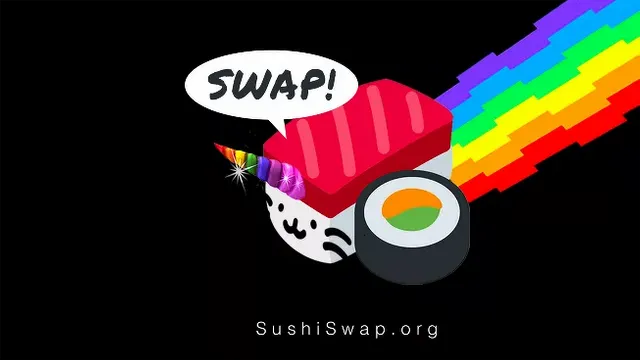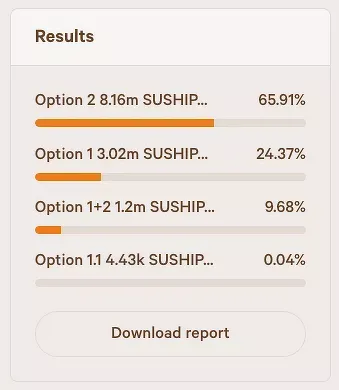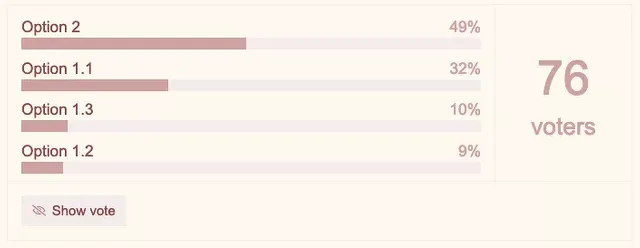SushiSwap is about to face the difficulty of 880 million U.S. dollars. Can it go through?
The Decentralized Exchange (DEX) SushiSwap community is struggling with the issue of the upcoming release of about 47 million tokens (880 million US dollars), which will be released from the end of April. The concern is that if these tokens are suddenly dumped on the market, the project's tokens (with a market value of only $2.3 billion) may be crushed.
But on the other hand, if SushiSwap does not perform the token release operation (the code shows that DEX is capable of doing so), it will be a face-off for the early builders of the project. Scott Lewis, co-founder of DeFi Pulse, said, "If they ask the agreement participants to earn money that they owe, it will greatly reduce the reputation of sushi."
what is the problem?
SushiSwap was launched on August 28, 2020. It is an Ethereum-based decentralized exchange (DEX) that allows people to directly trade tokens with others without interacting with centralized exchanges or other third parties.

Anyone who holds the original governance token SUSHI can pledge, that is, lock the tokens for 6 months in exchange for rewards. The reward is in the form of XSUSHI tokens. XSUSHI tokens receive transaction fees from the exchange, and holders can also have the right to govern and vote on network changes.
In October, the yield aggregator Harvest Finance (using users’ collateral for the DeFi token with the highest return on investment) began to support SUSHI, allowing its thousands of users to receive SUSHI income, and later other companies including Pickle Finance Agreements have also been followed up.
Starting around the end of April, 47 million SUSHI tokens (US$878 million) will have a 6-month lock-up period and should be unlocked by then, of which Harvest Finance accounts for 5%-6%.
Change the release schedule
On January 28th, Lukas Witpeerd, a member of the SushiSwap community, raised the issue of unlocking tokens, which triggered a discussion on how to distribute tokens. One solution is to airdrop all the tokens at once, while the other solution is to allow claims on a weekly basis, so that the transaction fees for claims will become higher.
SushiSwap token holders voted for the second option (65% approval rate), which is a slower way of fund distribution.

SushiSwap voting results, the pass rate is only 66%
But then SushiSwap's code was modified, which would prevent yield aggregators like Harvest Finance from acquiring SUSHI. On March 4, Witpeerd promoted the SushiSwap code change, continuing to allow individual wallet owners to claim their SUSHI, and anyone who interacts with the project through smart contracts will not get tokens. That is, Harvest Finance users will not receive any tokens.
On March 10, a member of the SushiSwap community called "Blakells" announced the reason for doing so. This is to protect the agreement "from the influence of'parasitic mining'. They have only one purpose: to buy back their tokens by smashing SUSHI in order to increase the price of their tokens."
The concern here is that a competitor agreement that has already stocked a large amount of SUSHI may immediately sell off in order to buy back its own native tokens. This not only depresses the price of SUSHI, but also pushes up the price of one's own tokens.
Blakells proposed a plan, and all agreements that can receive SUSHI must provide the SushiSwap community with a plan to explain how they plan to use the funds. He initiated a vote for them to choose: stick to the plan (allowing the project to claim tokens indefinitely) or set a time window. Respondents supported the original idea, but there is no option to reject the entire plan.

Only 76 people voted, source: SushiSwap forum
So far, both Pickle Finance and Harvest Finance have submitted proposals. Harvest's plan is to allocate funds within three years (in the DeFi field, this is a long time). Pickle's plan is to continue staking once it receives SUSHI, and staking "forever" (meaning, a particularly long time in DeFi).
Community criticism
The proposal has come under fire for many reasons. First of all, a commenter wanted to know when a vote was taken to exclude protocols using smart contracts from the distribution. There does not seem to be a vote on the SushiSwap forum. Another person added that there does not seem to be a governance vote behind this decision. "I hope to correct this decision. Frankly speaking, this is a bullshit."
Another problem is that SushiSwap changed the token distribution method after the agreed lock-up period of 5 months. The problem is that when the release schedule was announced, it was not on the chain. This means that funds are not automatically distributed to parties such as Harvest or Pickle, but are manually operated by the team. With this control, they can decide how to allocate funds, whether or not to allocate them.
"Since we did not create a contract, we can now fully control SUSHI, but we should do what we say." A member of the SushiSwap community named "BoringCrypto" wrote that he added that "changing the rules after the fact is like "a breach of contract" to me."
Another agreed. He said: "Reputation is everything. Given all the dramatic events we have experienced in the past few months, I think it is wise to be a good crypto citizen as much as possible." The drama he said included SushiSwap's. The anonymous creator cashed $10 million in SUSHI tokens for Ethereum-only, handed control of the exchange to other developers, including FTX founder Sam Bankman-Fried, and then finally returned the funds.
SushiSwap can survive such a thrilling incident, and the community will also hope that it can survive this relatively minor dispute.